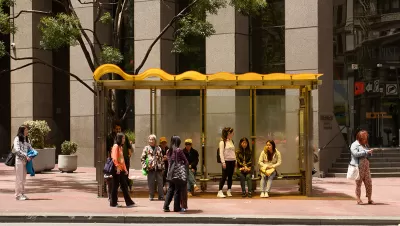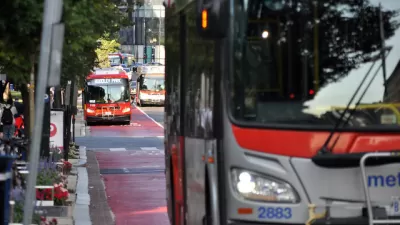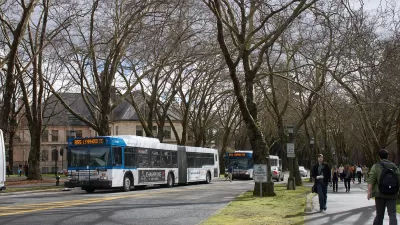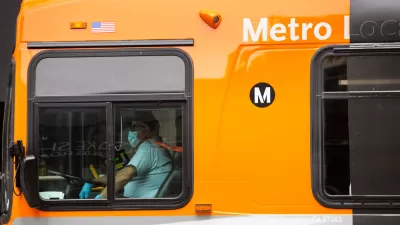As commuter ridership continues to lag due to the pandemic, transit systems are adjusting to better serve the essential workers and transit-dependent households who need them the most.

While transit ridership plunged during the pandemic, millions of workers in industries deemed 'essential' continued to rely on it. Unsurprisingly, writes Aarian Marshall, these jobs skew disproportionately to people of color. "An analysis from the APTA found that white men were more likely to have given up transit during the pandemic; people of color, people who spoke Spanish, and women did not."
As Marshall notes, "Agencies are legally obligated to provide equitable service for everyone in their community." But that hasn't always been the case in practice, with most systems focused on suburban commuters.
As 2020 wore on, transit agencies around the country began making changes to better serve the people who need them most. In Pittsburgh, "officials moved resources away from 'commuter' routes—those serving people who worked traditional office jobs on traditional schedules, who now were mostly at home—and toward lower-income neighborhoods, those with larger shares of people of color and households without cars." The Port Authority also added more service at off-peak hours and on weekends.
Other agencies have taken similar steps to address transportation equity and improve their service in underserved neighborhoods by expanding service, reorganizing routes, reducing or eliminating fares, and investing in PR campaigns to get the word out about service changes.
FULL STORY: Public Transit Systems Refocus on Their Core Riders

Alabama: Trump Terminates Settlements for Black Communities Harmed By Raw Sewage
Trump deemed the landmark civil rights agreement “illegal DEI and environmental justice policy.”

Study: Maui’s Plan to Convert Vacation Rentals to Long-Term Housing Could Cause Nearly $1 Billion Economic Loss
The plan would reduce visitor accommodation by 25% resulting in 1,900 jobs lost.

Planetizen Federal Action Tracker
A weekly monitor of how Trump’s orders and actions are impacting planners and planning in America.

Wind Energy on the Rise Despite Federal Policy Reversal
The Trump administration is revoking federal support for renewable energy, but demand for new projects continues unabated.

Passengers Flock to Caltrain After Electrification
The new electric trains are running faster and more reliably, leading to strong ridership growth on the Bay Area rail system.

Texas Churches Rally Behind ‘Yes in God’s Back Yard’ Legislation
Religious leaders want the state to reduce zoning regulations to streamline leasing church-owned land to housing developers.
Urban Design for Planners 1: Software Tools
This six-course series explores essential urban design concepts using open source software and equips planners with the tools they need to participate fully in the urban design process.
Planning for Universal Design
Learn the tools for implementing Universal Design in planning regulations.
Caltrans
Smith Gee Studio
Institute for Housing and Urban Development Studies (IHS)
City of Grandview
Harvard GSD Executive Education
Toledo-Lucas County Plan Commissions
Salt Lake City
NYU Wagner Graduate School of Public Service





























